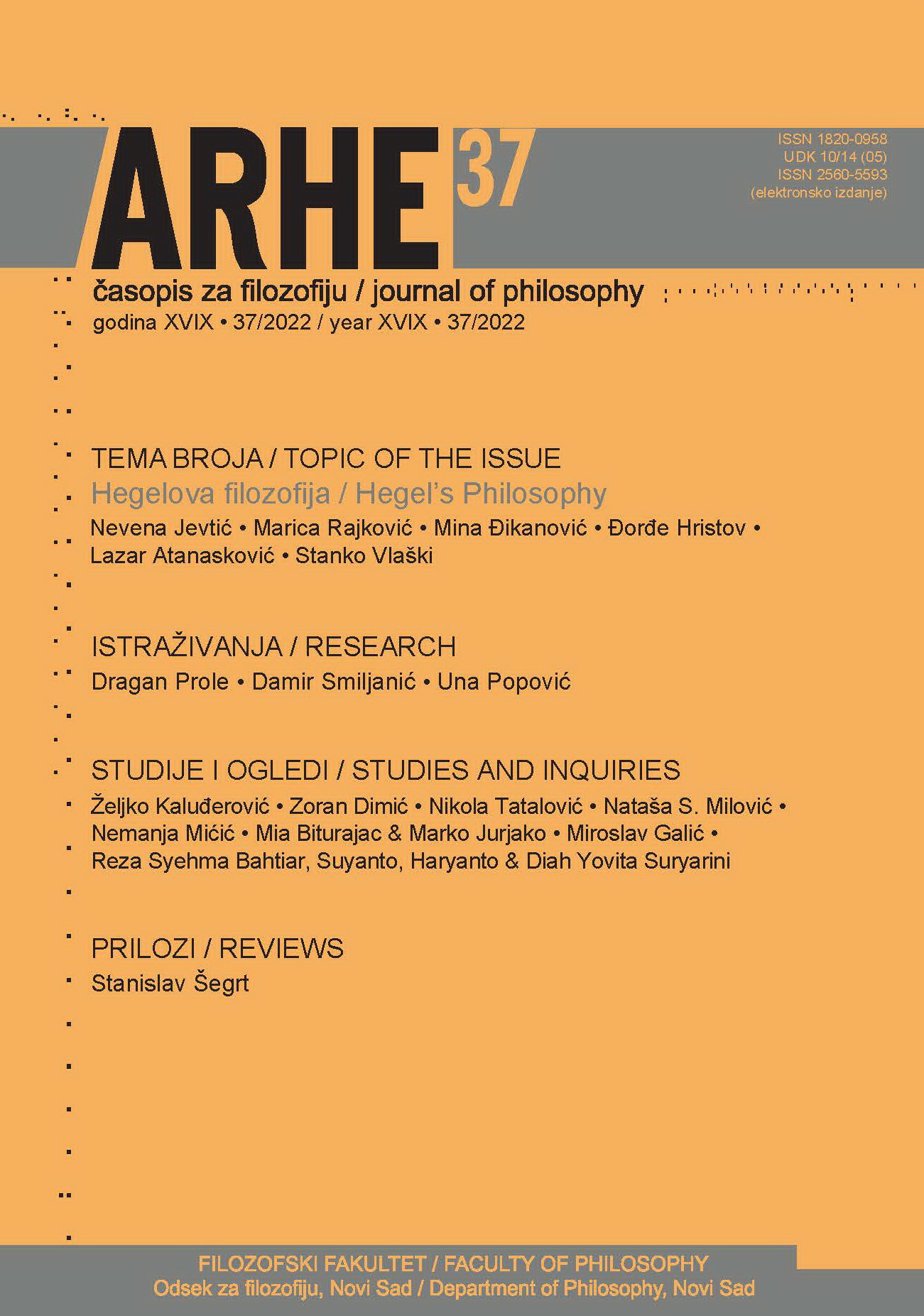Ničeovo poimanje helenskog, judeo-hrišćanskog, modernog i budućeg čoveka
Nietzsche’s Understanding of Hellenic, Judeo-Christian, Modern and Future Man
Author(s): Nataša S. MilovićSubject(s): History of Philosophy, Ethics / Practical Philosophy, Aesthetics, Philosophy of Religion, Philosophy of History
Published by: Филозофски факултет, Универзитет у Новом Саду
Keywords: Friedrich Nietzsche; culture; deity; genealogy; suffering; guilt; reward; punishment; values; nihilism;
Summary/Abstract: This work is dedicated to the exploration of that aspect of Nietzsche’s thought which we use to frame the epochal facet of his cultural-philosophical standpoint. It is specific because it’s not strictly articulated in his work, although he was, as we’ll show, also a thinker of cultural fundaments. His study of those fundaments was tied with intervention in the modern state of European culture which was, according to him, “debased in nihilism”. Therefore, his cultural-philosophical standpoint was crucially shaped by studying the origins of that nihilism, and the quest to overcome it. The aspect related to questioning of origins of nihilism was marked by Nietzsche’s relationship with Judeo-Christian and modern man, while the quest to overcome it was marked by his relation to Hellenic and “future” man. That bidirectional movement of his thought is linked to his genealogical method used to describe “man’s prehistorical work on himself”, as well as his effort to grasp the state of contemporary man, which, as he thought, couldn’t be observed from existing cultural-interpretative frameworks.
Journal: Arhe
- Issue Year: 2022
- Issue No: 37
- Page Range: 291-316
- Page Count: 26
- Language: Serbian

